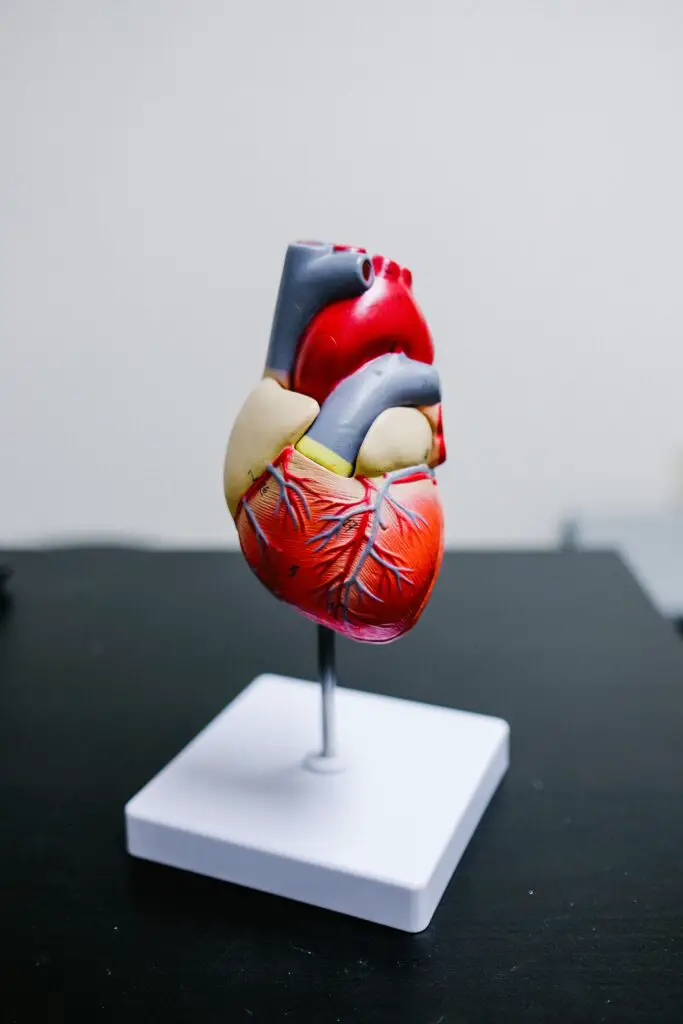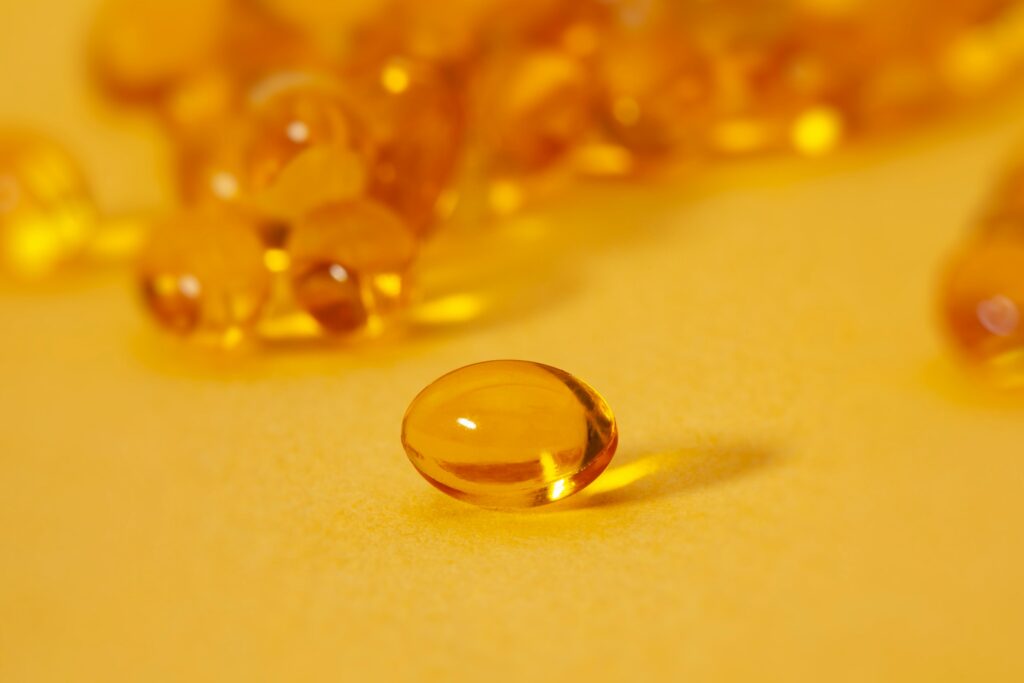Coffee is a daily ritual for many, offering a much-needed boost to start the day.
However, if you have high cholesterol, you might be wondering if your morning cup is doing more harm than good.
This post explores the connection between coffee and cholesterol, providing clear answers and practical advice.
Understanding how your brewing method and coffee choices affect your health can help you enjoy your favorite drink without worry.
Let’s dive into the facts and find out if coffee is truly bad for high cholesterol.

The Short Answer
Coffee can be bad for high cholesterol if consumed in unfiltered forms like French press or Turkish coffee, as these methods contain cafestol and kahweol, compounds that raise LDL cholesterol.
Opting for filtered coffee and moderating intake can help manage cholesterol levels.
Understanding Cholesterol

What is Cholesterol?
Cholesterol is a fat-like substance found in every cell of your body.
It’s essential for making hormones, vitamin D, and substances that help digest food.
There are two main types of cholesterol: LDL (low-density lipoprotein) and HDL (high-density lipoprotein).
LDL is often called “bad” cholesterol.
High levels of LDL can lead to a buildup of cholesterol in your arteries, increasing the risk of heart disease and stroke.
HDL, on the other hand, is known as “good” cholesterol.
It helps remove LDL cholesterol from the bloodstream, reducing the risk of heart problems.
Total cholesterol is the sum of your blood’s cholesterol content, including LDL, HDL, and other lipid components.
It’s important to maintain a healthy balance of these types to ensure your body functions properly.
Factors Affecting Cholesterol Levels
Several factors can influence your cholesterol levels.
Diet is a major one.
Foods high in saturated and trans fats can raise your LDL cholesterol.
Eating more fruits, vegetables, whole grains, and lean proteins can help lower it.
Lifestyle choices also play a crucial role.
Regular exercise can boost your HDL cholesterol while reducing LDL.
On the other hand, smoking can lower your HDL and increase your risk of heart disease.
Genetics is another key factor.
Some people inherit genes that cause high cholesterol levels.
If high cholesterol runs in your family, you may need to take extra steps to manage it.
Medical conditions can affect cholesterol too.
Diabetes, obesity, and hypothyroidism can lead to higher cholesterol levels.
Managing these conditions through medication and lifestyle changes is essential for keeping cholesterol in check.
Coffee and Cholesterol: The Connection

How Does Coffee Affect Cholesterol?
Coffee contains natural oils called cafestol and kahweol.
These compounds can raise LDL (bad) cholesterol levels.
Cafestol, in particular, is considered the most potent cholesterol-elevating compound found in the human diet.
When you drink coffee, these oils can enter your system and affect your body’s ability to process and remove cholesterol, leading to higher LDL levels.
Brewing Methods and Their Impact
The way you brew your coffee plays a significant role in its impact on cholesterol.
Unfiltered coffee methods, like French press, Turkish coffee, and boiled coffee, allow more cafestol and kahweol to remain in your drink.
This can lead to higher levels of LDL cholesterol.
For instance, drinking five cups of French press coffee daily for four weeks can increase cholesterol levels by 6 to 8 percent.
Filtered coffee, such as drip-brewed coffee using paper filters, contains much lower levels of these cholesterol-raising compounds.
The paper filter traps most of the cafestol and kahweol, making filtered coffee a safer choice for those concerned about cholesterol.
Espresso falls somewhere in between.
It has intermediate levels of cafestol compared to unfiltered and drip-brewed coffee.
While it still contains some cholesterol-raising compounds, the amount is less than what you would find in French press or Turkish coffee.
Does Decaf Coffee Affect Cholesterol?
Decaffeinated coffee may have less impact on cholesterol levels than regular coffee.
This is because the process of decaffeination can remove some of the oils that raise cholesterol.
However, it’s important to note that decaf coffee is not entirely free of cafestol and kahweol.
The difference lies in the amount; decaf generally contains lower levels of these compounds compared to regular coffee.
Risks Associated with Coffee Consumption

Caffeine and Cholesterol
Caffeine, a key component of coffee, can have mixed effects on heart health and cholesterol.
While caffeine itself does not significantly raise cholesterol levels, it can impact your heart in other ways.
High caffeine intake can lead to increased heart rate and blood pressure.
This can be risky for people with existing heart conditions.
Additionally, excessive caffeine consumption may contribute to anxiety, insomnia, and other health issues.
Additives in Coffee
What you add to your coffee can also affect your cholesterol levels.
Cream, half-and-half, and flavored syrups are high in saturated fats and sugars.
These additives can raise your LDL cholesterol and overall calorie intake.
For example, a high-sugar coffee drink, like a frappuccino, can contain over 50 grams of sugar and up to 600 calories.
Regular consumption of such drinks can lead to weight gain and higher cholesterol levels.
Opting for black coffee or using low-fat milk and minimal sugar can help manage these risks.
Drug Interactions
Coffee can interact with certain medications, impacting their effectiveness and your health.
The caffeine in coffee can amplify the effects of stimulants and interfere with the absorption of some drugs.
Medications that can interact with coffee include certain antibiotics, asthma medications, depression medications, and blood thinners.
For example, caffeine can enhance the effects of stimulant drugs, leading to increased heart rate and blood pressure.
If you are taking any medications, it’s important to consult with your healthcare provider about your coffee consumption to avoid potential interactions.
Benefits of Drinking Coffee

Health Benefits of Coffee
Coffee is not just a popular beverage; it also offers several health benefits.
One of the key advantages is its high content of antioxidants.
These compounds help protect your cells from damage caused by free radicals, reducing inflammation in the body.
Inflammation is linked to many chronic diseases, so reducing it can have a positive impact on your health.
Coffee has also been associated with a lower risk of several diseases.
Studies suggest that regular coffee consumption may reduce the risk of Parkinson’s disease, type 2 diabetes, and Alzheimer’s disease.
The caffeine and other bioactive compounds in coffee can improve brain function, enhance mood, and increase energy levels, which contribute to overall well-being.
Moderation is Key
While coffee has many benefits, moderation is crucial.
The FDA recommends consuming no more than 400 milligrams of caffeine per day, which is roughly equivalent to four to five cups of coffee.
This amount is considered safe for most people and can help you enjoy the benefits of coffee without the risks associated with excessive consumption.
Balancing your coffee intake with a healthy diet is also important.
Drinking coffee should not replace other nutritious beverages like water, herbal teas, or milk.
Additionally, being mindful of what you add to your coffee, such as cream and sugar, can help you avoid unnecessary calories and fats.
Managing Cholesterol Levels
Tips for Coffee Drinkers with High Cholesterol
If you have high cholesterol, making smart choices about your coffee can help manage your levels.
Here are some tips:

Opting for Filtered Coffee
Choosing filtered coffee over unfiltered methods can make a big difference.
Using a paper filter removes most of the cholesterol-raising compounds, such as cafestol and kahweol.
This simple switch can help keep your LDL cholesterol levels in check.
Limiting High-Fat Additives
What you add to your coffee matters.
High-fat creamers, whole milk, and flavored syrups can increase your LDL cholesterol and overall calorie intake.
Opt for low-fat or non-dairy milk alternatives and use minimal sugar to enjoy your coffee without the extra fats and sugars.
Choosing Decaffeinated Options
Decaffeinated coffee contains lower levels of cafestol and kahweol compared to regular coffee.
Switching to decaf can be a good option if you’re concerned about your cholesterol.
It still provides the enjoyment of coffee without the higher risk of raising your LDL levels.
General Tips for Lowering Cholesterol
Managing your cholesterol involves more than just adjusting your coffee habits.
Here are some general tips to help you maintain healthy cholesterol levels:

Heart-Healthy Diet
Eating a balanced diet rich in fruits, vegetables, whole grains, and lean proteins can significantly impact your cholesterol.
Avoiding foods high in saturated and trans fats is crucial.
Incorporating heart-healthy fats, like those found in olive oil, avocados, and nuts, can also help improve your cholesterol profile.
Regular Exercise
Staying active is essential for overall health and cholesterol management.
Regular exercise can help raise your HDL (good) cholesterol and lower your LDL (bad) cholesterol.
Aim for at least 30 minutes of moderate-intensity exercise most days of the week.
Avoiding Smoking and Managing Stress
Smoking can lower your HDL cholesterol and increase your risk of heart disease.
Quitting smoking can improve your cholesterol levels and overall heart health.
Additionally, managing stress through activities like yoga, meditation, or deep breathing exercises can help maintain healthy cholesterol levels.
Final Words
Understanding the relationship between coffee and cholesterol is crucial for those concerned about their heart health.
Coffee contains compounds like cafestol and kahweol that can raise LDL cholesterol, especially in unfiltered brews.
However, filtered coffee, moderation, and smart choices can mitigate these effects.
For coffee drinkers with high cholesterol, choosing filtered or decaffeinated options, and avoiding high-fat additives, can help manage levels.
Additionally, a heart-healthy diet, regular exercise, and avoiding smoking are essential for overall cholesterol management.
FAQ’s
Can I Drink Coffee if I Have High Cholesterol?
Yes, you can still enjoy coffee if you have high cholesterol.
Opt for filtered coffee and avoid unfiltered methods like French press or Turkish coffee.
Moderation is key to minimizing the impact on your cholesterol levels.
Does Quitting Coffee Lower Cholesterol?
Quitting coffee can lower your cholesterol, especially if you were consuming unfiltered coffee regularly.
By reducing the intake of cafestol and kahweol, the compounds in coffee that raise LDL cholesterol, you can see an improvement in your levels.
How Much Coffee is Too Much for High Cholesterol?
For individuals with high cholesterol, it’s recommended to limit coffee intake to no more than 3-4 cups per day.
This helps keep the consumption of cafestol and kahweol within safer limits.
Always consider your overall diet and lifestyle as well.
Will Coffee Mess Up a Cholesterol Test?
Coffee, particularly black coffee, is generally considered acceptable before a cholesterol test.
However, it is crucial to avoid adding sugar, cream, or other additives to coffee as these can impact blood sugar levels and skew test results.
Also, Filtered coffee is a better choice as it reduces the natural oils in coffee that can raise cholesterol levels.


